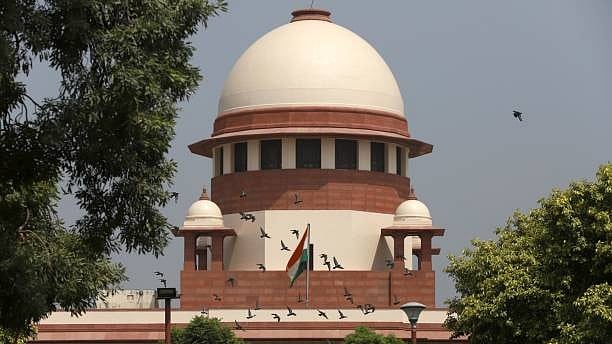
Supreme Court
Credit: iStock Photo
New Delhi: In a significant judgment, the Supreme Court has said just because a winning candidate has not disclosed information related to the assets, courts should not rush to invalidate the election by adopting a highly pedantic and fastidious approach.
A bench of Justices Surya Kant and N Kotiswar Singh said it has to been ascertained if such concealment or non-disclosure was of such magnitude and substantial nature that it could have influenced the election result.
"The true test, in our opinion, would be whether the non-disclosure of information about assets in any case is of consequential or inconsequential import, finding of which will be the basis for declaring the election valid or void as the case may be," the bench said.
The court stressed this disclosure requirement as far as assets and educational qualification is concerned, should not be unreasonably stretched to invalidate an otherwise validly declared election over minor technical non compliances that are not of substantial character, and should not be the basis for nullification of the people’s mandate.
The court underscored the voice of the people and collective wisdom should be respected which can even be placed on the highest pedestal of divine authority.
"This right to know the backgrounds of candidates, which corresponds to their obligation to disclose such information, must, however, be balanced with the people's mandate expressed through ballot boxes, which is central to democracy," the bench said.
The court dismissed an appeal filed by INC candidate Ajmera Shyam against election of Kova Laxmi as BRS candidate in Telangana Assembly elections held on December 3, 2023.
It said non disclosure of Income Tax returns for four financial years out of the last five financial years in the Form 26 Affidavit by the winning candidate was not a defect of substantial character.
"While disclosure of criminal antecedents in the electoral process was the most critical element to maintain the purity of the electoral process which has to be scrupulously adhered to, disclosure of assets and educational qualifications were considered as attending supplementary requirements to strengthen the electoral process, of which there will be certain scope for consideration as to whether it is of substantial or inconsequential nature," the bench said, in its August 14, 2025 judgment.
The court said the right to know full particulars of the candidates as a vital part of Article 19(1)(a) of the Constitution of India.
The participation by voters who are well-informed not only of the affairs of the state but also with knowledge of the candidates' backgrounds invigorates the electoral process, reaffirming that election is one of the fundamental features of democracy. Voters obtain essential information about the candidates through the exercise of the fundamental right to know about them, derived from Article 19(1)(a) of the Constitution, it pointed out.
The court also said an income tax statement is a declaration in fiscal terms for assessment by the income tax authority, intended for taxation on the assets and income received by a person.
"It is not to be considered as a statement of fact of the existence of assets or source of income," the bench said, upholding Telangana High Court's dismissal of the election petition.
